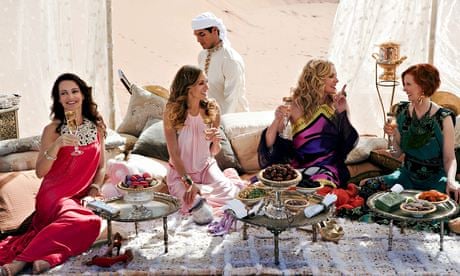"Is it housekeeping though?" I have bumped into a male acquaintance while clutching the May edition of Good Housekeeping magazine, and he seems confused. The 129-year-old stalwart (91 years old in the UK) made headlines this week with a feature it sweetly and discreetly trails on its cover as "our most intimate test ever". A hundred Good Housekeeping readers, aged between 30 and 80, have tested a range of vibrators to find out if "they're hitting the spot" (If you're interested, the stylish, pebble-shaped Je Joue Mimi was the winner, scoring 77 out of 100 and collecting accolades for not being "scary"). Cue bewilderment from the male populace – my friend eventually decides the feature is a cynical stunt designed to make the magazine "sexy" – and sniggering from the tabloids. The Daily Mirror, for instance, trumpeted the news with the headline: "Housewives' favourite Good Housekeeping magazine shocks readers with SEX TOY review."
Well I never. The only really shocking thing about this story is that women using vibrators somehow constitutes headline news. I am in my 30s (OK, just) and as far as I'm concerned, vibrators went mainstream in 1998, when they were featured on the infamous episode of Sex and the City where Charlotte gets hooked on her Rabbit – a serious vibrating and rotating sex toy that apparently sold out after the episode was aired – and the rest of the gang has to stage an intervention.
I bought my own first vibrator around that time, from a lovely sex shop in Hoxton Square in London called Sh! where you are offered herbal tea as you browse, and men can only go in when accompanied by a woman. I tricked my boyfriend at the time into coming in with me, and when he realised what sort of shop it was he fled in terror and refused to come back. In retrospect we probably shouldn't have got married, but we are happily divorced now so all's well that ends well.
The vibrator I chose I liked to think of as retro – resolutely not shaped like a part of the male anatomy, it looked like it was made out of Bakelite, and consisted of a small vibrating oval attached by a cord to a control unit. My current model is a bright pink and blue number that lights up and looks slightly space-age – and I would never be without it. While not a substitute for a human being, vibrators are fun and, more to the point, they are reliable. As Miranda says in that same Sex and the City episode: "I know where my next orgasm is coming from – who here can say as much?"
The fact that women taking control of their own sexual pleasure is still seen as shocking smacks of only one thing – ageism. The median age of the Good Housekeeping reader is 53. I can't help thinking that had the product test been in Grazia or Cosmopolitan no one would have batted an eyelid.
In the magazine Susan Quilliam, a relationship psychologist, highlights that "aware and adventurous" baby boomers were at the forefront of the sexual revolution. "Women use them with their partners, but there is also a flurry of women in their late 40s, 50s, and 60s who suddenly find themselves single and don't want to forgo their sex life," she says. Well quite. Sorry guys, but we women are not about to slink off to the kitchen at the first sight of a grey hair or take up needlepoint the second the menopause hits. You're more likely to find us in the bedroom, with our vibrators. Sally Tyne, the founder of online sex toy boutique Whistle & Hum, says the site's page on menopause issues is one of the most viewed.
Which is why the Good Housekeeping survey is simply brilliant – the more women of any age who are in control of their own orgasm the better. As the magazine's deputy editor Michelle Hather put it, when asked on BBC Radio 4 why the magazine commissioned such a feature: "We did it because our readers are women."
